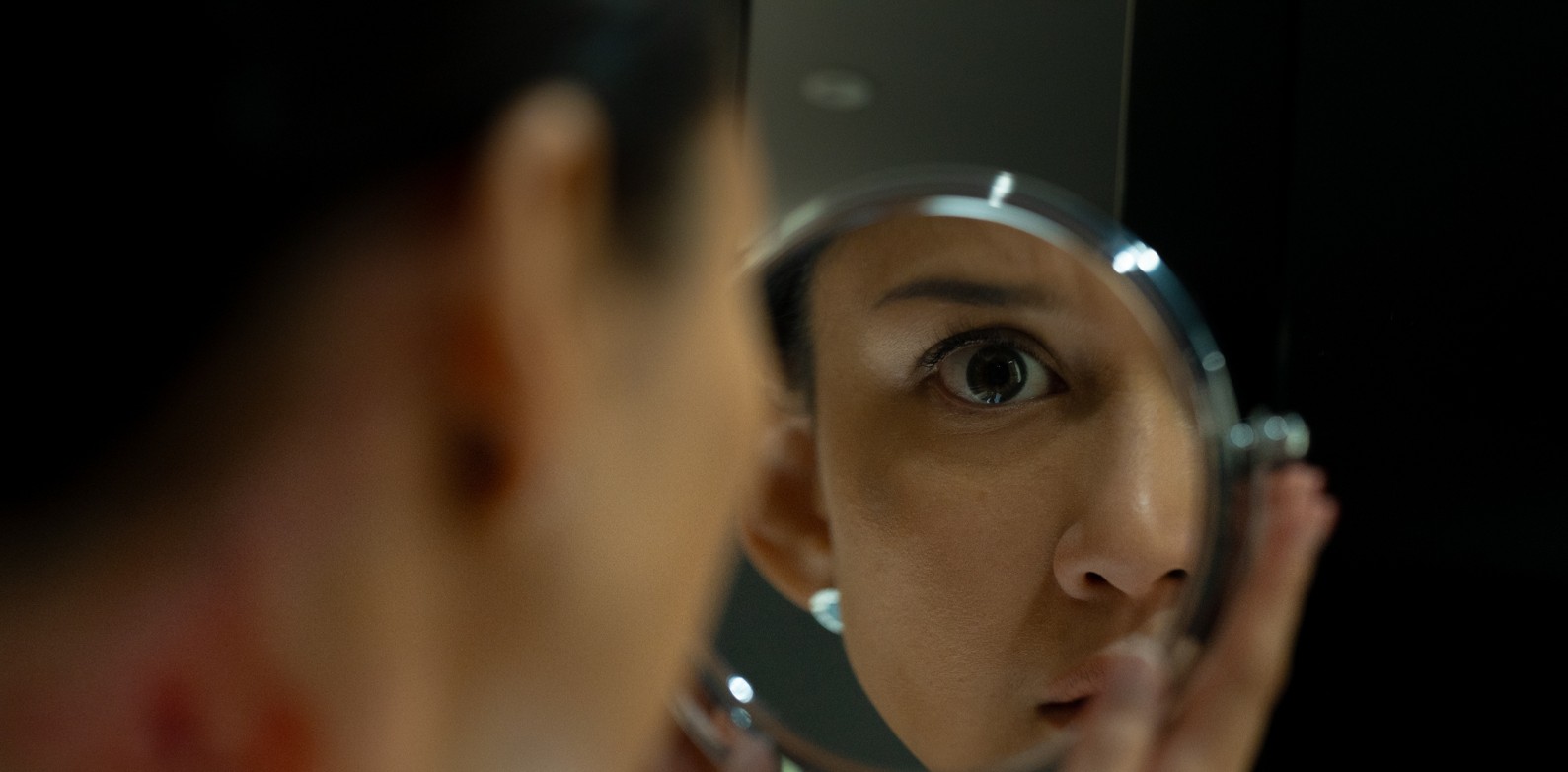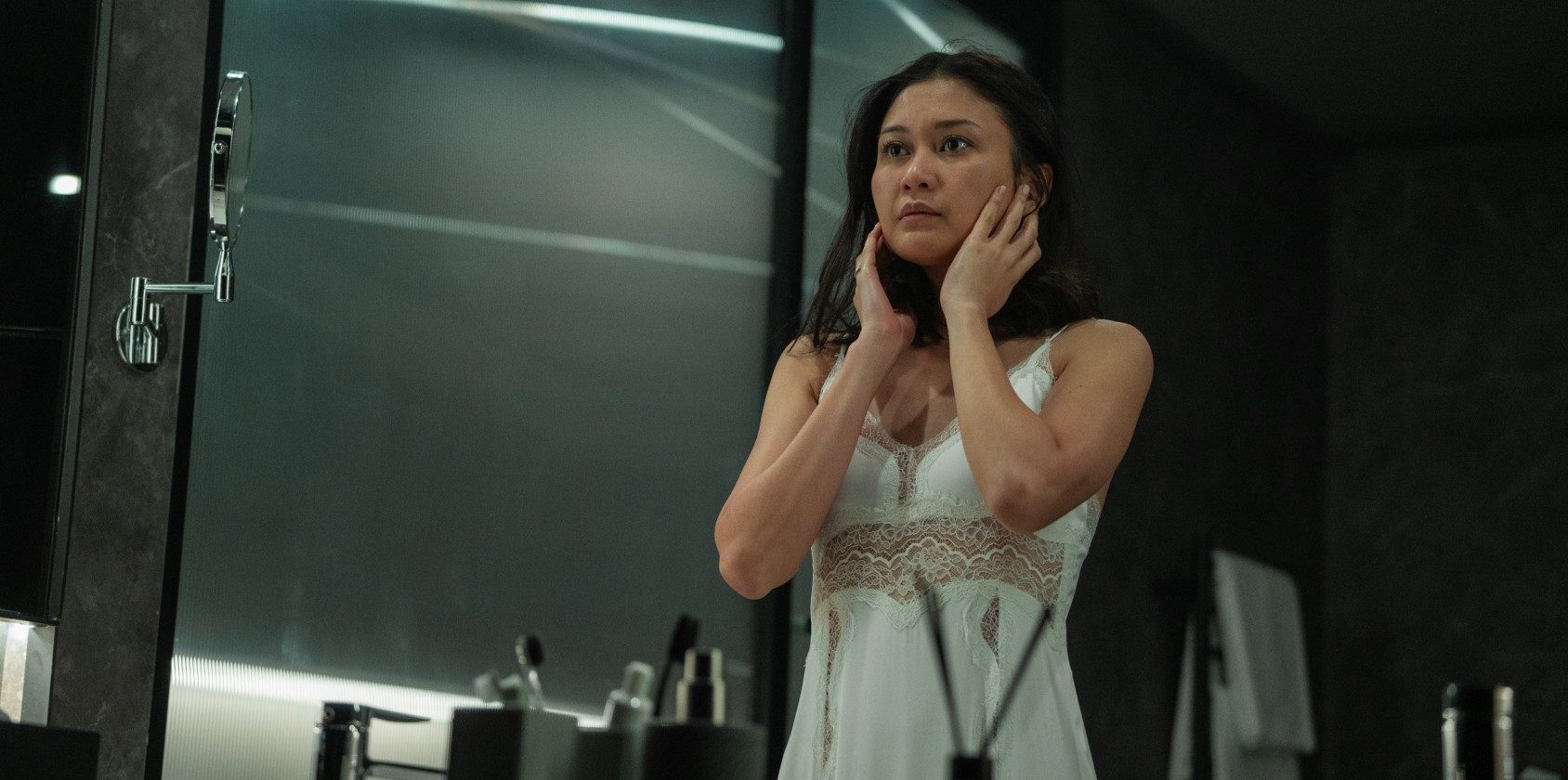Netflix’s ‘A Normal Woman‘ follows Milla, a privileged woman who begins to show a unique set of symptoms that disrupt her carefully cultivated public image. A deeper dive into her illness subsequently tells us more about the context behind her circumstances, and a deeply troubled psyche soon comes forth. As the protagonist’s symptoms worsen, it becomes increasingly evident that her hidden past needs to be unearthed. However, the truth only accelerates Milla’s spiral into the unknown and ultimately prompts her to take drastic measures to safeguard her sense of self. Helmed by Lucky Kuswandi, this psychological thriller tests the limits of how memory can impact a person’s life, for better and for worse.
A Normal Woman is a Fictional Story of Self-Discovery Steeped in Research
While ‘A Normal Woman’ is a work of fiction written by Lucky Kuswandi and Andri Cung, it nonetheless grounds its story in real-life concerns. It accurately brings out how a person would react to mysterious illnesses, especially when they are tied to their past. Kuswandi, who also serves as the movie’s director, discussed his creative process in a press release held in Jakarta, Indonesia. He explained how the story came to be due to his interest in learning the essence of the healing process, which to him felt like recovering the erased parts of a life. He further emphasized how those parts can exist outside the bounds of normalcy, and that the key is to regain one’s spirit. Thus, the idea of trauma altering a person’s psychology becomes one of the primary focuses of the narrative, particularly with how it affects memory.

Co-writer Andri Cung added to Kuswandi’s perspective, detailing how their experiences informed the character writing process. He brought up how their observations led them to question society and how it forces people to tweak parts of themselves to impress others, resulting in a slow erosion of the original self. Cung continued by saying that the film does not aim to villainize anyone, since a variety of reasons and pressures can be behind their decisions. In light of this, the movie provides an entire platter of layered character dynamics, with each interaction adding a new piece to the puzzle. Malli’s journey into herself is, as such, affected by others’ perception of her. This nuance adds realism to her character while also making room for additional depth.

Actor Marissa Anita, who plays the protagonist Milla, shared her own take on the movie’s inspiration during the same press conference. She described how, in preparation for her role, the director introduced her to a book titled ‘The Myth of Normal,’ written by Gabor and Daniel Maté. The book discusses how society’s idea of a healthy individual is based on a concept that is as fragile and fluid as the norm. Kuswandi’s movie extends this premise, adding a dimension of wealth to the discourse. The characters in the film devote a significant amount of time to maintaining their social image of a wealthy, picture-perfect family. This frequently leads to the display of elitism, as behind closed doors, their true natures are revealed in front of their workers and caretakers, which serves as a commentary on society at large.
A Normal Woman Explores Cosmetic Surgery in a New Light
Another major facet of society that the film addresses is the obsession with beauty standards. It points out how the youth are often pressurized by society to fit an artificial mold of what is considered attractive, and, in some cases, even compelled to undergo cosmetic surgery. According to a survey conducted in 2023, several Indonesian women and children from different age groups reported body dysmorphia and internalized image of the ideal physique. It further reported that nearly a quarter of the participants took drastic measures, such as reducing their food intake or doing excessive exercise, to reach their desired look. Additionally, over half of them reported a desire to have cosmetic surgery, a revelation that simply hints at the tip of the iceberg.

The discourse of ‘A Normal Woman’ is not limited to the mere practice of aesthetic surgery; instead, it delves deeper and addresses the question of bodily agency. It explores how parental coercion serves as a real threat in the industry, with surgeries potentially taking place to fulfill an adult’s imposition on a child. Many studies, such as the one conducted in 2018 in South Korea, report parental influence as the reason for 15% and 21% of the cosmetic surgeries amongst young South Korean men and women, respectively. Kuswandi’s directorial venture approaches this theme with utmost sensitivity, balancing the perspectives of both ends, while clearly highlighting the inherent power imbalances involved. This results in a comprehensive take on the subject, one that informs as much as it inquires.
Read More: A Normal Woman Ending Explained: Is Milla’s Escape a Dream or Reality?


